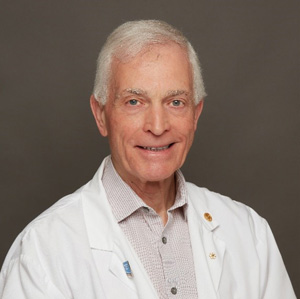Speaker Bios
Susan Ano, PhD
Director, Office of Technology Transfer
National Institute of Neurological Disorders and Stroke
Sue has been an active member of the NIH technology transfer community since 2002, where she has facilitated the advancement of scientific endeavors through collaborations, patenting, licensing, and other means. She is proud to lead a team of professionals dedicated to the advancement of science using tech transfer mechanisms, focusing on best-fit solutions to achieve positive outcomes. Prior to her current position, Sue was a technology licensing specialist and branch chief, giving her an extensive range of tech transfer experiences from multiple vantage points within the NIH infrastructure and resulting in several NIH awards for her achievements. With a Ph.D. from the Department of Chemistry at Emory University and B.S. in chemistry from the University of Delaware, Sue has a firm foundation established on which to broaden her scientific knowledge to include neurological disorders and infectious diseases in addition to a sound framework for application of other relevant aspects, including legal, business, and policy. Sue is passionate about facilitating partnerships and other activities to ensure that NINDS and NIH can accomplish our mission to apply scientific knowledge to enhance health.
 Patrik Brundin, MD, PhD
Patrik Brundin, MD, PhD
Distinguished Scientist / Therapeutic Area Leader for Movement Disorders
Roche
Patrik Brundin is a Distinguished Scientist and Therapeutic Area Leader for Movement Disorders at F. Hoffmann-La Roche since 2022. He then earned his PhD (1988) and MD (1992) at Lund University, Sweden. He was appointed professor of medical neuroscience at the same university in 2000, and moved to Van Andel Institute as director of a new center for neurodegenerative science in 2012. He is highly cited in the area of neurodegenerative diseases with more than 430 publications on Parkinson’s and Huntington’s Diseases. Regarding Parkinson’s research, he has focused specifically on disease mechanisms and novel therapies. He had a key role in the development of brain cell transplantation in Parkinson’s disease, participating in the first successful clinical trials in Lund, and leading work to improve the technology thereafter, as well as advancing trials using stem cell-derived neurons. He has made several contributions to the understanding of Parkinson’s disease pathogenesis. His team was one of the first to discover Lewy pathology in grafted neurons in patients, and first suggested that alpha-synuclein aggregates propagate between neurons in a prion-like manner. Brundin developed animal models of the spread of pathology, mimicking the brain in prodromal Parkinson’s disease, and highlighted alpha-synuclein as a therapeutic target for experimental disease-modifying therapies. At Roche he leads a research network working from target validation to phase II clinical trials in movement disorders. While addressing multiple therapeutic targets in both Parkinson’s and Huntington’s diseases, he has maintained his interest in alpha-synuclein, and is involved in discovery research and clinical trials targeting this protein. Starting in 2012, he served for a decade as the inaugural chair of the International Linked Clinical Trials committee, a large drug repurposing program in Parkinson’s disease. He has also held other leadership roles, including the World Parkinson Coalition Board of Directors; the MJ Fox Foundation Scientific Advisory Board; founding co-editor-in-chief of the Journal of Parkinson’s Disease for over a decade, and scientific co-founder of Kenai Therapeutics (iPSC-based transplantation PD therapy).
 Alice Chen-Plotkin, MD
Alice Chen-Plotkin, MD
Parker Family Professor of Neurology
University of Pennsylvania
Alice Chen-Plotkin is the Parker Family Professor of Neurology at the University of Pennsylvania. A Phi Beta Kappa graduate and English literature major at Harvard University, she began her scientific training as a Rhodes Scholar at Oxford University. At the Perelman School of Medicine at the University of Pennsylvania, she leads a research group studying the neurodegenerative diseases and maintains a clinical practice caring for Parkinson’s Disease patients. She is the founding director of the Molecular Integration in Neurological Diagnosis (MIND) Initiative, an interdisciplinary effort launched in 2018 to develop precision medicine in the Penn Parkinson’s Disease clinic. Dr. Chen-Plotkin has won top awards from the American Academy of Neurology (Jon Stolk Award, 2014), the American Neurological Association (Derek Denny Brown Award, 2018), and the Doris Duke Foundation (Paragon Award, 2023) for her translational research efforts.

Leon Chen, PhD
Partner
The Column Group
Dr. Chen joined The Column Group in 2019. Previously, he was a Venture Partner at OrbiMed focusing on company creation and investing in early-stage biotech companies. In this capacity he took on interim management roles at E-Scape Bio, TranscripTx and Adicet. He also served on the board of Pionyr Immunotherapeutics and Logic Bio. Prior to that Dr. Chen was a Partner at Skyline Ventures and an entrepreneur in residence at Venrock.
Dr. Chen started his career in 2002 as a founder of KAI Pharmaceuticals, which was acquired by Amgen in 2012 and led to the approval of Parsabiv in US, Europe, and Japan. He earned his BA in Biochemistry from UC Berkeley, PhD in Molecular Pharmacology from Stanford School of Medicine, and MBA from Stanford Graduate School of Business.
Mark R. Cookson, PhD
Senior Investigator and Chief, Laboratory of Neurogenetics, NIA, NIH
Dr. Mark R. Cookson is a cell biologist whose current research interests include the effects of mutations in the genes associated with neurodegeneration at the cellular and molecular level. His laboratory efforts are directed at finding the underlying pathways that lead to Parkinson’s disease and related disorders. Dr. Cookson received both his B.Sc. and Ph.D. degrees from the University of Salford, UK in 1991 and 1995, respectively. His postdoctoral studies included time spent at the Medical Research Council laboratories and at the University of Newcastle, Newcastle, UK. He joined the Mayo Clinic, Jacksonville, Florida, as an Assistant Professor in 2000 and moved to the NIA in February 2002. Within the Laboratory of Neurogenetics, Dr. Cookson’s group works on the effects of mutations associated with Parkinson’s disease on protein function.

Rebekah Corlew, PhD
Lived Experience Engagement Strategist
National Institute of Neurological Disorders and Stroke
Dr. Rebekah Corlew currently serves as the Lived Experience Strategist in the Scientific and Public Engagement Branch in the Office of Neuroscience Communications and Engagement (ONCE). Her role is to assist NINDS staff in engaging with people with lived experience of neurological disorders (PWLE), ensuring their perspective is considered and incorporated into research priorities and planning throughout the discovery process. Prior to her current position, Dr. Corlew worked for the Association of American Medical Colleges (AAMC) as the Director of Biomedical Research Community Engagement, leading the AAMC strategic plan to “prioritize research”. She also previously served as Project Director for Public Engagement at the American Association for the Advancement of Science, leading science communication fellowships and initiatives to increase public engagement with science. She earned a B.S. in Neurobiology and a B.S. in Psychology from the University of Washington, a Ph.D. from University of North Carolina Chapel Hill, and completed a postdoctoral fellowship at Duke University. After her postdoctoral fellowship she served as a Research Coordinator and Lead Public Engagement Scientist at the Max Planck Florida Institute for Neuroscience.

Jeffrey Cummings, MD, ScD
Director, Chambers-Grundy Center for Transformative Neuroscience
University of Nevada Las Vegas, School of Integrated Health Sciences, Department of Brain Health
Jeffrey Cummings, MD, ScD, is the Joy Chambers-Grundy Professor of Brain Science, Director of the Chambers-Gundy Center for Transformative Neuroscience, Co-Director of the Pam Quirk Brain Health and Biomarker Laboratory, Department of Brain Health, School of Integrated Health Sciences, University of Nevada Las Vegas (UNLV). Dr. Cummings is globally known for his contributions to Alzheimer’s research, drug development, and clinical trials. He has been recognized for his research and leadership contributions in the field of Alzheimer’s disease through many awards including the Ronald and Nancy Reagan Research Award of the national Alzheimer’s Association (2008), Lifetime Achievement Award of the Society for Behavioral and Cognitive Neurology (2017), Distinguished Scientist Award of the American Association of Geriatric Psychiatry (2010), Bengt Winblad Lifetime Achievement Award from the national Alzheimer’s Association (2019), and the Alzheimer’s Drug Discovery Foundation’s Melvin R. Goodes Prize. He was featured in the Gentleman’s Quarterly (June 2009) as a “Rock Star of Science™.” Dr. Cummings completed Neurology residency and a Fellowship in Behavioral Neurology at Boston University, followed by a Research Fellowship in Neuropathology and Neuropsychiatry at the National Hospital for Nervous Diseases, Queen Square, London. Dr. Cummings was formerly Director of the Mary S. Easton Center for Alzheimer’s Disease Research at UCLA, and Director of the Cleveland Clinic Lou Ruvo Center for Brain Health. Dr. Cummings’ interests embrace clinical trials, developing new therapies for brain diseases, and the interface of neuroscience and society. He has authored or edited 43 books and published over 900 peer-reviewed papers.

Fiona Elwood, PhD
VP, Disease Area Leader Neurodegeneration, Neuroscience
Johnson & Johnson Innovative Medicine
Fiona has extensive experience in neuroscience and neurodegenerative research and development, a passion for bringing relief to patients and their caregivers, and dedication to scientific excellence and exceptional teamwork. She brings deep expertise in molecular mechanisms of neurodegeneration, drug discovery and development. In her current role as the neurodegeneration disease area stronghold leader at Johnson & Johnson, she is responsible for the scientific strategy of the neurodegeneration portfolio from target selection through PIII clinical development. Previously, she was the Interim Global Head of Neuroscience and Head of Neurodegeneration at Novartis Institute for Biomedical Research. Before Novartis, she spent nearly 10 years at Merck Research Laboratories in positions of increasing responsibility in both neuroscience and immunology therapeutic areas. Fiona received her doctorate in Neuroscience from the University of London, UK and completed her postdoctoral work in Neuroscience at Stanford University.

Danielle Graham, PhD
Head of Fluid Biomarkers and Bioanalysis
Biogen
Dr. Graham received her PhD from Baylor University. After her doctoral training, she completed a postdoctoral fellowship at the University of Texas Southwestern Medical Center in Dallas, TX characterizing the role of BNDF and CREB in the mesolimbic DA system in neuropsychiatric illness. Dr. Graham moved to Boston MA in 2007 to join the Neurobiology department at Merck Research Labs. As a research biologist at Merck, she contributed to the early-stage drug discovery pipeline through the development of novel pharmacodynamic and efficacy models of CNS Disease. In 2009, she moved to EMD Serono, and joined the Translational Neuropharmacology group. At EMD Serono, she was responsible for leading a team of scientists in the characterization of novel therapeutics and biomarker endpoints for AD, PD, and MS. In 2014, she moved to Biogen and joined the Translational Sciences group at Biogen where she has had roles with increasing responsibility over the years. At present, Dr. Graham is Vice President, Head of Fluid Biomarkers and Bioanalytics at Biogen. Dr Graham and her team played a critical role in the recent accelerated approval of Tofersen, a novel therapy in SOD1 ASO. Tofersen was granted accelerated approval based on the data generated on neurofilament indicating NfL is a surrogate endpoint reasonably likely to predict clinical benefit.

Anastasia Henry, PhD
Director and Principal Scientist
Denali Therapeutics
Anastasia (Stacy) Henry leads a team of scientists within the Pathway Biology group at Denali Therapeutics. Her lab is focused on understanding the mechanisms by which disease-associated proteins affect lysosomal function and ultimately contribute to pathogenesis, enabling the development of novel therapeutic approaches to treat Parkinson’s disease and neuronopathic lysosomal storage disorders. She leads biology efforts to support the LRRK2 kinase inhibitor programs at Denali and to explore the role of lysosomal function in neurodegeneration more broadly. Anastasia received her Ph.D. from the University of California, San Francisco in the lab of Mark von Zastrow and her postdoctoral training in the neuroscience department at Pfizer in the lab of Warren Hirst.

Dina Katabi, PhD
Thuan and Nicole Pham Professor
Massachusetts Institute of Technology
Dina Katabi is the Thuan and Nicole Pham Professor of Electrical Engineering and Computer Science at MIT, and the director of MIT’s Center for Wireless Networks and Mobile Computing. Her research focuses on innovations in digital health, wireless sensing, and applied machine learning. Professor Katabi was awarded a MacArthur Fellowship in 2013 and is a member of the National Academy of Engineering, the National Academy of Sciences, and the American Academy of Arts and Sciences. She has also received three honorary degrees from the American University of Beirut, the American University of Cairo, and the Catholic University of America. Her research has been recognized with the Association for Computing Machinery (ACM) Prize in Computing, the ACM Grace Murray Hopper Award, two ACM SIGCOMM and one ACM SIGMOBILE Test of Time Awards, the Faculty Research Innovation Fellowship, a Sloan Research Fellowship, the NBX Career Development Chair, and the National Science Foundation CAREER Award. Her students twice received the ACM Doctoral Dissertation Award in computer science and engineering. Her work was also recognized with the IEEE William R. Bennett Prize, three ACM SIGCOMM Best Paper Awards, a Networked Systems Design and Implementation Best Paper award, and a TR10 award. Several startups have been spun out of Katabi’s lab, including Emerald. Professor Katabi earned a BS from Damascus University, and an SM and PhD from MIT.

Jessi Keavney
Senior Vice President of Finance and Administration
Tendergrass
Jessi Keavney works full-time as a Senior Vice President of Finance and Administration, and in her free time volunteers as a trained research advocate with the Parkinson’s Foundation. Recently, Jessi is first author on the advocate-led paper “Perspectives of People At-Risk on Parkinson’s Prevention Research” published in 2024 in the Journal of Parkinson’s Disease. Jessi’s grandfather was diagnosed with PD at age 45 and passed away in 1957 at age 50 following two pallidotomies. Jessi helped to care for her father, who passed away in 2021 nineteen years after his diagnosis of Parkinson’s at age 52. In June 2022, Jessi’s uncle was diagnosed with Parkinson’s at age 76, and she currently helps to manage her uncle’s care as his healthcare proxy. After discovering that she carries the LRRK2 G2019S variant (same as her father and uncle) through 23andMe in 2013, Jessi has participated in over thirty-five biomarker and observational studies throughout the last decade. While she does not display cardinal motor symptoms of PD and is currently only 46 years old, in 2023 Jessi received abnormal results on the Syn-One skin biopsy test, indicating phosphorylated a-syn co-localized in the nerve fibers in her distal thigh as well as reduced nerve fiber density in her distal leg. Through her lived experience as a research participant and someone genetically at-risk for PD, Jessi is determined to help drive science forward to ensure that future generations do not suffer from Parkinson’s. You can find more information about Jessi’s story and connect with her at link2lrrk2.com.

Karl Kieburtz, MD, MPH
Professor
University of Rochester
Karl Kieburtz, MD, MPH is a neurologist and clinical researcher. He was the initial Robert J Joynt Professor in the Department of Neurology, and served as the Director of the Clinical and Translational Science Institute and Senior Associate Dean for Clinical Research at the University of Rochester. He served on the Steering Committee for the PPMI program sponsored by the Michael J Fox Foundation, and as a Project Co-Director in the NINDS- funded Udall Center for Parkinson Disease at Rochester. Dr Kieburtz was the past Chair of the Parkinson Study Group Executive Committee, and has been global Principal Investigator for more than 50 multi-center and multi-national NIH, industry, and Foundation sponsored clinical trials, including the large NIH-sponsored multi- center NET-PD study. He was elected as a Fellow in the American Association for the Advancement of Sciences in 2014.

Opher Kornfeld, PhD
Director, Translational Research and Development
SPARK NS
Dr. Opher Kornfeld is the Director of Translational Research and Development at SPARK NS. At SPARK NS, Dr. Kornfeld oversees the Parkinson’s Disease Translational Research Program, which combines research funding alongside education and mentorship to support academic investigators in advancing their discoveries from the bench to the clinic. Previously, he was a scientist at Genentech, where he used genome-wide screens to identify and characterize pharmacological targets in cell death and innate immune pathways. His research at Genentech was at the intersection of drug discovery, gene editing, high-throughput imaging, and computational biology. Dr. Kornfeld received his bachelor’s degree from the University of Oregon and his Ph.D. from Stanford University in the lab of Prof. Daria Mochly-Rosen, where he was a Smith Stanford Graduate Fellow. For his PhD, Dr. Kornfeld devised peptide inhibitors of protein-protein interactions to study the role of mitochondrial morphology and function in cellular physiology and neurodegenerative pathology.

Walter J. Koroshetz, MD
Director
National Institute of Neurological Disorders and Stroke
Dr. Koroshetz serves as Director of the National Institute of Neurological Disorders and Stroke. He joined NINDS in 2007 as Deputy Director and has co-led the NIH’s BRAIN Initiative, the NIH RECOVER Initiative in the study of Post Acute Sequelae of COVID-19, NIH Blueprint for Neuroscience, the Traumatic Brain Injury Center collaboration between the NIH intramural and the Uniformed Health Services University, the NIH Helping to End Addiction Long Term (HEAL) Initiative, and the Undiagnosed Diseases Network. He co-leads a number of NIH Common Fund’s programs including the Acute to Chronic Pain Signatures program, Somatic Cell Genome Editing program, ALS Transformative Research Award program, and he was instrumental in founding the NIH Office of Emergency Care Research. Before NINDS, Dr. Koroshetz served as the Neurology Vice Chair and Director of stroke and neurointensive care and led neurology resident training at Massachusetts General Hospital as a Harvard professor.

Anthony Lang, MD, FRCPC
Director, Edmond J Safra Program in Parkinson’s Disease
University of Toronto
Dr. Lang is Professor and previous Director of the Division of Neurology at the University of Toronto. He holds the Jack Clark Chair for Parkinson’s Disease Research and the Lily Safra Chair in Movement Disorders. He is the Director of the Edmond J. Safra Program in Parkinson’s Disease, the Rossy Progressive Supranuclear Palsy Program and the Morton and Gloria Shulman Movement Disorders Clinic, Toronto Western Hospital and the University of Toronto. He is one of the most highly cited investigators in the field of Movement Disorders with more than 980 peer-reviewed publications and h-index of 180. His awards and distinctions include: Officer of the Order of Canada, 2010; Fellow of the Canadian Academy of Health Sciences and Fellow of the Royal Society of Canada, 2011; Honorary Member of the International Parkinson and Movement Disorder Society (MDS) 2014; the first MDS Pan-American Section Leadership Award, 2017; the Weston Brain Institute International Outstanding Achievement Award, 2018; the Dean’s Lifetime Achievement Award for global impact from University of Toronto, 2020 and the Jay Van Andel Award for Outstanding Achievement in Parkinson’s Disease Research and the Margolese National Brain Disorders Prize, 2022. In 2023, Research.com included him in their Ranking of Best Scientists in the field of Medicine.

William (Bill) J. Martin, PhD
Global Neuroscience Therapeutic Area Head
Johnson & Johnson Innovative Medicine
Bill Martin is the Global Neuroscience Therapeutic Area Head at Johnson & Johnson Innovative Medicine and a member of the company’s Group Operating Committee. He leads a dedicated team focused on the discovery and development of a precision neuroscience pipeline of transformative treatments for individuals grappling with serious neuropsychiatric and neurodegenerative disorders. Building on Johnson & Johnson’s 60-year legacy in neuroscience, Bill’s team is driving a differentiated portfolio of new and innovative therapies.
Before joining Johnson & Johnson, Bill co-founded and served as the President and Chief Executive Officer of Blackthorn Therapeutics, acquired by Neumora Therapeutics in 2020. Blackthorn, under his leadership, blended computational and clinical neuroscience, employing a precision medicine approach to develop innovative therapeutics for central nervous system (CNS) disorders.
Bill earned his bachelor’s degree in Psychology from Swarthmore College and completed his doctorate in Experimental Psychology at Brown University. He conducted postdoctoral research at the Keck Center for Integrative Neuroscience at the University of California, San Francisco.

Timothy Miller, MD, PhD
David Clayson Professor of Neurology
Washington University School of Medicine
Timothy Miller, MD, PhD is Vice Chair of Research for the department of Neurology, co-director of the ALS Center and the David Clayson Professor of Neurology at Washington University School of Medicine in St. Louis. His group focuses on developing novel therapies for neurodegenerative diseases, including ALS and tauopathies. Dr. Miller has pioneered work with antisense oligonucleotides (ASOs) and has led successful ASO clinical trials in SOD1-related ALS and developed an ASO therapy for tauopthies. His work has received several distinguished awards for innovation and Dr. Miller was elected to the National Academy of Medicine in 2023.

Lauren Nguyen-Antczak, PhD, JD
Senior Technology Transfer Manager
NCI Technology Transfer Center at Frederick
Lauren is a senior technology transfer manager at the National Cancer Institute, handling intellectual property matters for intramural scientists at Fort Detrick, Maryland. Being at NIH technology transfer for twelve years, Lauren has provided counseling and lead negotiations for various patent and licensing transactions in a wide array of intellectual property portfolios with particular subject matter expertise in small molecules. Beyond technology transfer, Lauren has worked on numerous NIH initiatives aimed at de-risking technology gaps for commercial development of intramural technologies (NCI Medicinal Chemistry Accelerator and Start-Up 2.0) and is currently detailing at the NIH SEED office to provide intellectual property consultations to NIH SBIR awarded small companies.
Lauren has a PhD in organic chemistry, and a JD from schools in California where she currently resides. Prior to joining Government, Lauren worked at national law firms specializing in patent procurement, portfolio management, and intellectual property due diligence of small biotech companies. Lauren was a biotechnology patent examiner at the U.S. Patent Office and served as a judicial clerk at the U.S. International Trade Court.

Shalini Padmanabhan, PhD
Vice President, Discovery & Translational Research
Michael J. Fox Foundation
Shalini Padmanabhan is Vice President of Discovery and Translational Research at The Michael J. Fox Foundation for Parkinson’s Research. At the Foundation, she oversees a team of 9 other scientists and over 400 active projects focusing on the biological understanding of Parkinson’s disease, target validation efforts, preclinical therapeutic development and biofluid biomarker development efforts. Shalini earned an undergraduate degree in Pharmaceutical Sciences from U.I.C.T, India and a PhD in Neuroscience from the Medical College of Georgia. Prior to joining the Foundation, Shalini trained as a postdoctoral research scientist at Columbia University where she worked on validating novel targets to treat Parkinson’s disease using a gene therapy approach.

Kathleen Poston, MD, MS
Edward F. and Irene Thiele Pimley Professor in Neurology and Neurological Sciences, Director, Stanford Movement Disorders Center
Stanford University
Dr. Kathleen Poston is the Edward F. and Irene Thiele Pimley Professor in Neurology and Neurological Sciences and (by courtesy) Neurosurgery at Stanford University. She received her Bachelor’s of Science in Bioengineering at the University of Pennsylvania, her Master’s Degree in Biomedical Engineering and her MD at Vanderbilt University. She completed her Neurology residency training at UCSF, completed a fellowship in clinical Movement Disorders at Columbia University and post-doctoral research training in Functional Neuroimaging at the Feinstein Institute. Dr. Poston’s research and clinical emphasis is biomarker development to study the motor and non-motor impairments symptoms, such as dementia, that develop in patients with Parkinson’s disease and Lewy body dementia. Dr. Poston is Chief of the Movement Disorders Division and holds an appointment in the Memory Disorders division. She is a founding member of the Stanford Alzheimer’s Disease Research Center and co-Director for the Lewy Body Dementia Association Research Center of Excellence at Stanford University, and Director of the Stanford Parkinson’s Foundation Center of Excellence.

Michael Schwarzschild, MD, PhD
Professor of Neurology
Massachusetts General Hospital, Harvard Medical School
Dr. Schwarzschild is a neurologist at Massachusetts General Hospital (MGH) and Professor of Neurology at Harvard Medical School. His translational research program investigates environmental and genetic influences and interactions in animal models and clinical studies of PD. He directs the Molecular Neurobiology Lab at the MassGeneral Institute for Neurodegenerative Disease where his interdisciplinary research program spans the neurobiology, epidemiology and clinical science of Parkinson’s. A current focus of his research group is the development of clinical trials to prevent PD. The work builds on recent advances in defining prodromally and genetically at-risk populations, and in identifying relatively low-risk candidate neuroprotectants targeting these populations. He leads the Parkinson Study Group (PSG), a consortium of North American clinical trial sites and investigators dedicated to finding improved treatments for people with Parkinson’s. At MGH he cares for patients with PD in a weekly movement disorders clinic.

David Stone, PhD
Vice President, Genetics and Target Identification
Cerevel Therapeutics, LLC
Dave Stone has studied neurodegenerative disease for almost 30 years. He held a faculty position at Harvard Medical School until 2000, when he joined the pharmaceutical industry to work on drug development. Since then he has applied genetics and genomics across pipeline stages (including target identification, safety, and clinical trials) to enable the development of novel therapeutics. While at Merck he led the team which ran one of the first-ever genome-wide siRNA screens (amyloid processing) and was a co-discoverer of the KIF5A association with ALS. He led the team which uncovered the functional link between TMEM175 and Parkinson disease. For the past 10 years he has worked on the cellular phenotypes driven by genetic risk factors for PD such as TMEM175 and their connection to disease. In 2019 he joined Cerevel Therapeutics as the Head of Genetics, where he oversees target identification, validation, and program entry into Cerevel’s pipeline.

John P. Sullivan
Entrepreneur In Residence
National Institutes of Health
John Sullivan has been a leader in healthcare technology innovation throughout his career, with extensive experience in operating, investing in, developing and acquiring market-leading businesses. He currently serves as an Entrepreneur In Residence at the National Institutes of Health – promoting innovation and commercialization of technologies within NIH-funded life science ventures. Prior to the NIH, John worked with healthcare leaders such as Cardinal Health (VP, Strategy and Business Development) and Boston Scientific. He was a Partner with Foundation Medical Partners, a national healthcare venture capital firm with financial backing from the Cleveland Clinic. He also helped to start Molecular Staging Inc., a biotechnology tools company spun out of Yale University School of Medicine. Working with Yale University founders, he helped grow the company to over 100 employees, develop its product and service lines, and ultimately sell the company to Qiagen, a global life sciences company. He has served on the boards of directors of Semprus Biosciences (acquired, Teleflex), Coapt Systems (acquired, MicroAire), KEW Group, and Direct Flow Medical and held board observer roles at BridgePoint Medical (acquired, Boston Scientific) and Explorys (acquired, IBM). John earned a B.S. in Industrial Engineering degree with distinction from Stanford University and an M.B.A. from the Stanford University Graduate School of Business.

Amir Tamiz, PhD
Director
Division of Translational Research, National Institute of Neurological Disorders and Stroke
Dr. Tamiz is the Director of the Division of Translational Research at the National Institute of Neurological Disorders and Stroke (NINDS). Prior to that he was a program director overseeing the NIH Blueprint Neurotherapeutics network (BPN) and Innovation Grants to Nurture Initial Translational Efforts (IGNITE). Blueprint Neurotherapeutics network is a collaborative effort among 15 of the agency’s institutes and centers, leveraging their resources to offer neuroscience researchers grant funding for drug discovery and development activities to confront major, cross-cutting challenges in neuroscience. The program was established as a pipeline between academic and industry drug development research and offers neuroscience researchers a “virtual pharma” to develop promising hit compounds from chemical optimization through Phase I clinical testing. Principal Investigators receive grant funding and in kind discovery and development resources such as medicinal chemistry, API synthesis and manufacture, formulation and drug product manufacture, IND enabling studies, and clinical trial capabilities. Launched in December 2014, IGNITE program is intended to create a more contiguous source of support from discovery to preclinical development. The first two programs include: 1) Assay Development and Therapeutic Agent Identification and Characterization to Support Therapeutic Discovery (PAR-15-070) and 2) Pharmacodynamics and In vivo Efficacy Studies for Small Molecules and Biologics/Biotechnology Products (PAR-15-071). Prior to joining NIH in 2012, Dr. Tamiz had held scientific and management positions in research and development of therapeutic programs at Corvas International (acquired by Dendreon), CovX (now part of Pfizer), and Alba Therapeutics. Dr. Tamiz received his Ph.D. at University of Oregon and conducted postdoctoral research at the Department of Neuroscience at Georgetown University Medical Center.
Thomas F. Tropea, DO, MPH, MSTR
Assistant Professor in Neurology
University of Pennsylvania
Dr. Thomas F. Tropea is an Assistant Professor in Neurology at the University of Pennsylvania where his research focuses on the use of genetics and biomarkers to develop precision medicine approaches for neurodegenerative diseases. He maintains a clinical practice seeing patients with movement disorders at Pennsylvania Hospital.

Laura Volpicelli-Daley, PhD
Associate Professor
University of Alabama at Birmingham
Dr. Volpicelli-Daley grew up in Albuquerque, NM, and studied Math and English Literature in college. Her PhD in Neuroscience was earned at Emory University in the lab of Dr. Allan Levey, where she studied cholinergic signaling in Alzheimer’s disease. She also trained as a postdoc studying the cell biology of the neuron at Yale University in the lab of Dr. Pietro De Camilli. She then worked as a senior scientist in the lab of Dr. Virginia M.-Y. Lee and Dr. John Trojanowski at the University of Pennsylvania. Here, she contributed to the discovery that fibrils of α-synuclein act as seeds to template the growth of pathologic aggregates from endogenously expressed α-synuclein in neurons.
Now, Dr. Volpicelli-Daley is Associate Professor in Neurology with tenure at the University of Alabama at Birmingham (UAB), and Parkinson Association of Alabama Endowed Professor. Her lab is interested in how pathologic forms of alpha-synuclein contribute to cognitive impairment and motor dysfunction in Parkinson’s disease (PD) and Dementia with Lewy Bodies (DLB). PD is the most common motor neurodegenerative disorder. Lewy body dementia is the second most common cognitive disorder after Alzheimer’s disease. The lab is especially interested in how early synaptic corruption of alpha-synuclein leads to changes in synaptic function and morphology in brain areas such as the amygdala, cortex and striatum. The lab is also interested in how mutations in genes linked to PD and DLB such as GBA1 cause synaptic and cognitive defects.
Dr. Volpicelli-Daley is also director of a Graduate Neuroanatomy course, and a MD/PhD course in fundamentals of basic science. She is Associate Director of Neurology Resident Research. She is passionate about mentoring the next generation of scientists. She was awarded the Dean’s Excellence in Mentorship Award and the Roadmap Scholar Program Research Mentor Award.

Laura Winchester, DPhil
Research Fellow
University of Oxford
Dr. Winchester is a senior bioinformatician and an Alzheimer’s Research UK Fellow. She is based in the Department of Psychiatry at Oxford University. She is interested in the application of large-scale multi-omics data to better understand disease variants and therapeutics. This involves using genomic and proteomic data analysis from Parkinson’s Disease and healthy population cohorts to develop new biomarkers and understand neurodegenerative mechanisms by applying integrative and machine learning methodologies.

























